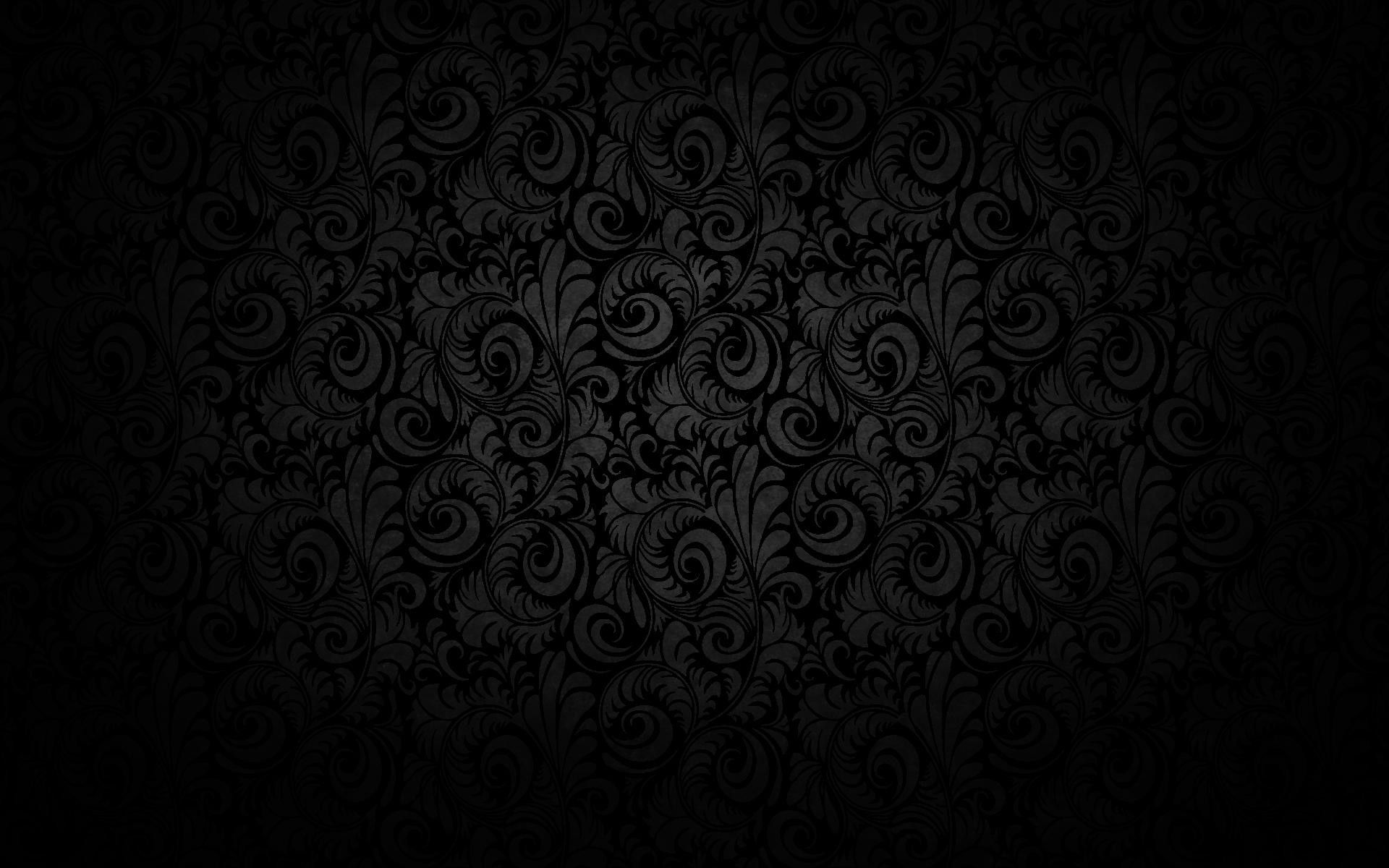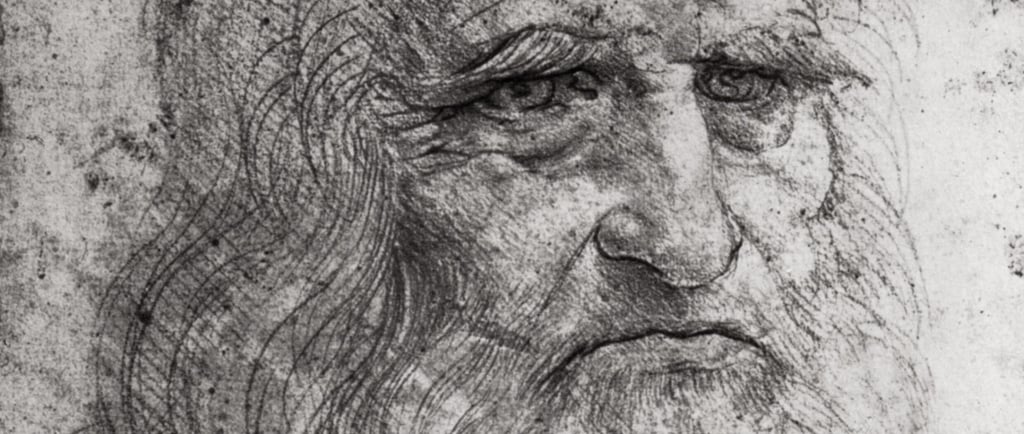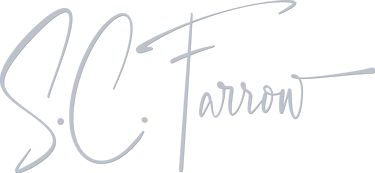
Life in the Time of Covid
When it landed in Australia, we, like many other countries around the world, went into lockdown.
RHAPSODIES
S.C. Farrow
1/31/20214 min read


I’m going to start this post by drawing your attention to Leonardo Da Vinci. Leonardo Da Vinci is widely considered to be one of (if not the) most diversely talented people who ever lived. Born a bastard and rumoured to be gay (he was accused of sodomising a male prostitute), he was gifted in multiple scientific and artistic disciplines.
In short, not only was he a scientist, but he was also an artist. He is, in fact, widely considered to be one of the greatest artists of all time. To Da Vinci, art and science went hand-in-hand. One was equally as important as the other.
So, what does Leonardo Da Vinci have to do with COVID-19? Read on...
LOCKDOWN
Barring Turkmenistan, North Korea, and a few other remote or isolated places, there’s hardly a place on the planet that hasn’t been touched by COVID-19.
When it landed in Australia, we, like many other countries around the world, went into lockdown. I live in Melbourne, and in the wake of hundreds of deaths caused by this merciless disease, we experienced some of the harshest lockdown conditions in the world. Granted not as harsh as Chile or Brazil, but still, it was tough going here for a while.
As we closed the country down and shut everyone out, thousands of people lost their jobs, thousands suffered mentally, emotionally, and socially, and the ever-present chasm between the wealthy and the poor got wider.
However, the government acted and actioned support payments for those who suddenly found themselves out of a job. As they should. However, the cost of these support payments comes at the expense of other citizens’ financial stability.
THE FINANCIAL COST
In 2017-2018, the arts and arts related industries contributed $14.7 billion to Australia’s GDP*. That’s not an insignificant amount. Yet, in challenging times, the first thing that is always sacrificed is the arts, all branches of the arts, performing and representational. Looking at the situation objectively, slashing support for arguably non-essential products and services seems logical. However, as a result of this, everyone from venue owners and musicians through to graphic artists and arts teachers suddenly found themselves out of work, or if not out of work, in seriously compromised financial positions.
Additionally, the lack of vision and understanding regarding the importance of art in our lives is staggering.
In modern society, art is everywhere. The buildings we live and work in were created by architects with artistic vision. We wear clothes created by fashion designers. We watch movies and TV shows that have been written by writers, envisioned by directors, and performed by actors, on sets created by set designers. We listen to music composed by musicians. We gaze upon paintings and sculptures created by gifted artists. We eat food made by master chefs.
“Life without the collective resources of our libraries, museums, theatres and galleries, or without the personal expression of literature, music and art, would be static and sterile – no creative arguments about the past, no diverse and stimulating present and no dreams of the future.” ~ Arts Council England (2014)
Throughout history, art has been created and celebrated alongside science. Throughout history, the importance of art on our psychological wellbeing has been recognised and respected. Art is the expression of what it means to be human.
Yet, in these modern times, art in any form is widely considered to be ‘the easy subject’ in schools and education institutions, insignificant in wider society, and a general waste of one’s time and effort. It is often viewed as the poor cousin of anything STEM or sports related.
The Australian Book Review posted this comment on Facebook on the 29th January, 2021: “Thirteen years ago, ABR deplored the paucity of artists, and writers in particular, being nominated in the Australia Day honours. The 2021 Australia Day honours perpetuated this neglect of writers. This reflects the present federal government’s pusillanimous attitude towards literature and the humanities, indeed all the arts, those pesky expressions of individuality, ambiguity, and contrariness. One national honour did stand out though, at the top of the list. Margaret Court, already an AO since 2007, was elevated to the highest tier, Companion of the Order of Australia (AC).”
Leonardo must be rolling over in his grave.
PERSONAL LOSES DUE TO COVID
I am one of those people whose employment and financial stability has been impacted as a direct result of the government’s action to shift money away from arts related industries.
I am a sessional teacher. I teach in professional writing and editing courses. As of this year, I’m teaching one unit per semester. From that, I earn barely more than someone who is receiving unemployment benefits.
In truth, this shifting of funds away from arts related courses began long before COVID hit our shores. However, there’s no denying the arrival of COVID drove the coffin nail in deeper and harder into professional writing and editing courses, so much so, that the course I currently teach in was under threat of closing down for good.
In my career as a professional writer, I’ve been blessed with some extraordinary opportunities and experiences. And I love my job as a teacher. I consider the ability to pass on my knowledge and experience to others (of all ages) to be a privilege.
The closure of these courses is not only devastating to people like me but is crushing to people who long to learn the craft of fiction writing.
BACK TO LEO
The current worldwide health crisis continues to have a devastating effect on much of the world. The rhythm of our lives, the way we work and socialise, has been rocked. However, we should not forget that in times like this, the arts sustain and nourish our minds and our souls.
In times of crisis, the enjoyment of art can be a stabilising experience. When we marvel at a sculpture or a painting, lose ourselves in a piece of music, are enthralled by a play or a ballet, or compelled on a literary journey, we are not only reminded of our ability to create and endure, but we are also reminded of our humanity and our connection to the world and each other.
Leonardo Da Vinci was a one-of-a-kind human being. Very few, if any, of us will rise to that level of genius. However, we can be like him in our appreciation of both art and science.
As human beings we need art in our lives as much as we need science and technology. In a perfect world, one would not be eschewed in favour of the other.
As the world adapts to a new normal, let’s make more time to appreciate, if not create, art that nourishes us, mind, body, and soul.
* APO (Analysis and Policy Observatory): https://apo.org.au/node/303286#:~:text=The%20creative%20arts%20make%20a,Domestic%20Product%20in%202017%E2%80%9318.
Creative writing
Writing during lockdown
Covid-19
Lockdown
Job losses

© 2026. All rights reserved
In the spirit of reconciliation, we acknowledge the Traditional Custodians of Country throughout Australia and the Torres Straight Islands and their connections to land, sea, and community. We pay our respects to elders past and present and extend that respect to all First Nations and Torres Strait Islander peoples today.
ABN: 19 569 432 238





